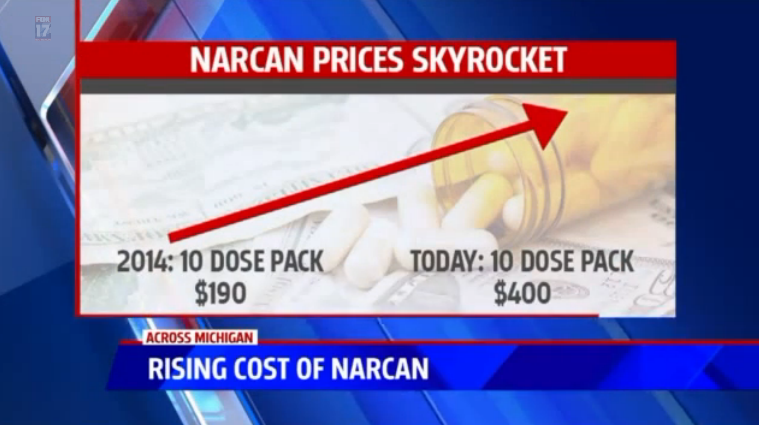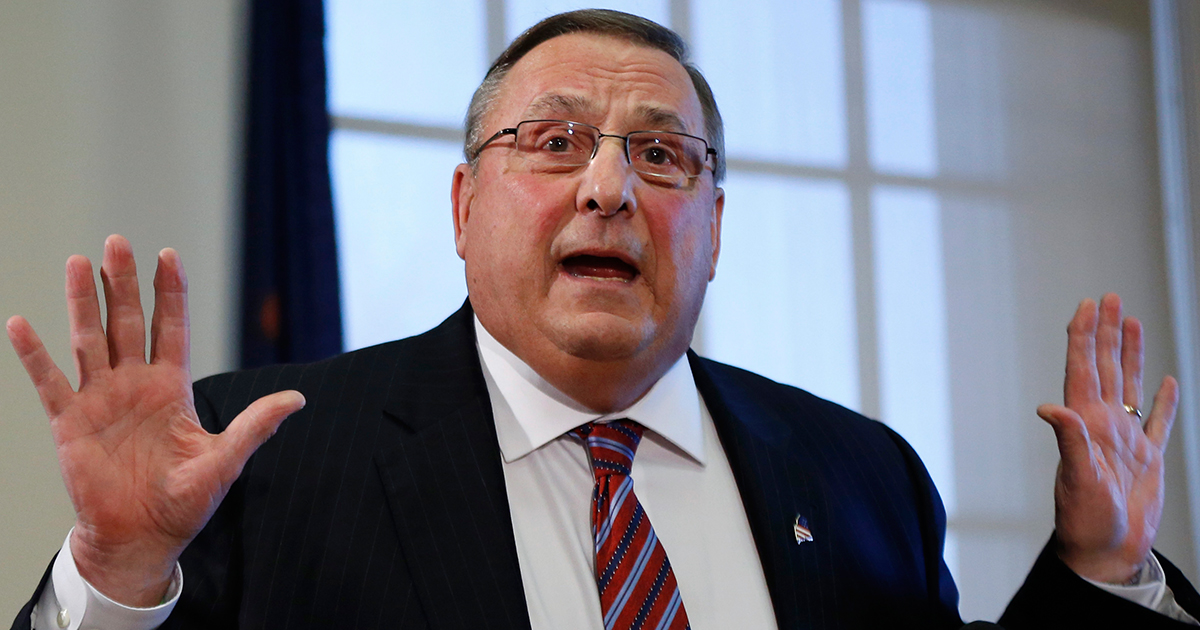The Price of This Anti-Overdose Drug Is Skyrocketing

By:
The price of a drug that blocks the deadly effects of an opioid overdose is steadily climbing, putting lives at risk in a country that's experiencing rising rates of prescription painkiller and heroin addiction.
.JPG?auto=format&crop=faces&fit=crop&q=60&w=736&ixlib=js-1.1.0)
Naloxone, an anti-overdose rescue medication, used to cost as little as $1 per dose in the late 1990s, but now certain brands that sell variations of the drug are charging up to $40 per dose. In the last two years, certain naloxone brands saw a 17-fold price increase, Fox 17 reports.
Naloxone is the name of the drug itself, but there are several brands of the drug that come in different forms: Narcan, a nasal spray manufactured by Adapt Pharma; Evzio, an auto-injector manufactured by Kaleo Pharma; and Naloxone HCL, a prefilled syringe made by Amphastar Pharmaceuticals. (The former are the most common brand forms of naloxone.) Amphastar has come under particular scrutiny by members of the U.S. House Committee on Oversight and Government Reform, which launched a probe into the company to investigate price hikes of its naloxone product.
That's because drug companies that used to sell generic versions of naloxone are being replaced by companies that are selling modified versions of the drug.
 Fox 17 - fox17online.com
Fox 17 - fox17online.com
"[Fifteen years ago,] we had a few different generic manufacturers competing, so it kept the price low," Daniel Raymond, the policy director of the Harm Reduction Coalition, told ATTN:. "Since then, most of those generic manufactures dropped out of the market, so the price has steadily increased. It's a similar pattern to what we're seeing with a lot of generic drugs."
The price hike of naloxone is partly the product of innovation in the pharmaceutical industry, but a lack of competition in the market is driving up costs. Fifteen years ago, the most common generic version of naloxone came in the form of an intramuscular shot that could be complicated to administer for someone who isn't effectively trained; now there are nasal spray versions of the drug, for example, which are generally easier to administer. ATTN: reached out to Amphastar Pharmaceuticals for comment on the company's drug pricing practices, but a representative was not immediately available.
Raymond explains why access to naloxone is an important step forward in the fight against the opioid epidemic.
"We know that we have a lot of things that we should be doing to prevent overdoses in the first place, but at the same time, as long as we still have people overdosing — whether it's from prescription painkillers or heroin — we've got to have the tool on hand to respond quickly, and that tool is naloxone," Raymond said. "It can immediately block the effects of any opioids in the system and restore breathing, and that gives people a fighting chance."
"If they're struggling with addiction, it gives them a chance to get on the path to recovery. If they're living in a rural area where seconds can count, you can administer it while you're waiting for the ambulance to show up. It's the equivalent of having an EpiPen or defibrillator on hand."
Critics of naloxone such as Maine Gov. Paul LePage say that increased access to the drug enables a cycle of addiction.
 AP/Robert F. Bukaty - apimages.com
AP/Robert F. Bukaty - apimages.com
As ATTN: previously reported, LePage stirred controversy last month after he vetoed a bill that would've expanded access to naloxone in Maine, arguing that the bill "serves only to perpetuate the cycle of addiction."
Harm reduction advocates dispute that point, contending that naloxone access represents a crucial treatment option for people who inadvertently overdose on opioids. It's especially important in light of increasing opioid-related deaths. In 2014, more than 28,000 people died from opioid overdoses in America, according to the Centers for Disease Control and Prevention.
"I think that's based on a faulty perception," Raymond said of LePage's naloxone criticism. "If the fear of an overdose kept people from using drugs in the first place, then we wouldn't be in the situation that we're in now."
"The addiction is powerful in and of itself and can compel people to continue using even at the risk of their own health. The presence or absence of naloxone doesn't determine whether someone is using heroin — it just determines whether they're likely to live or die if they suffer an overdose."
